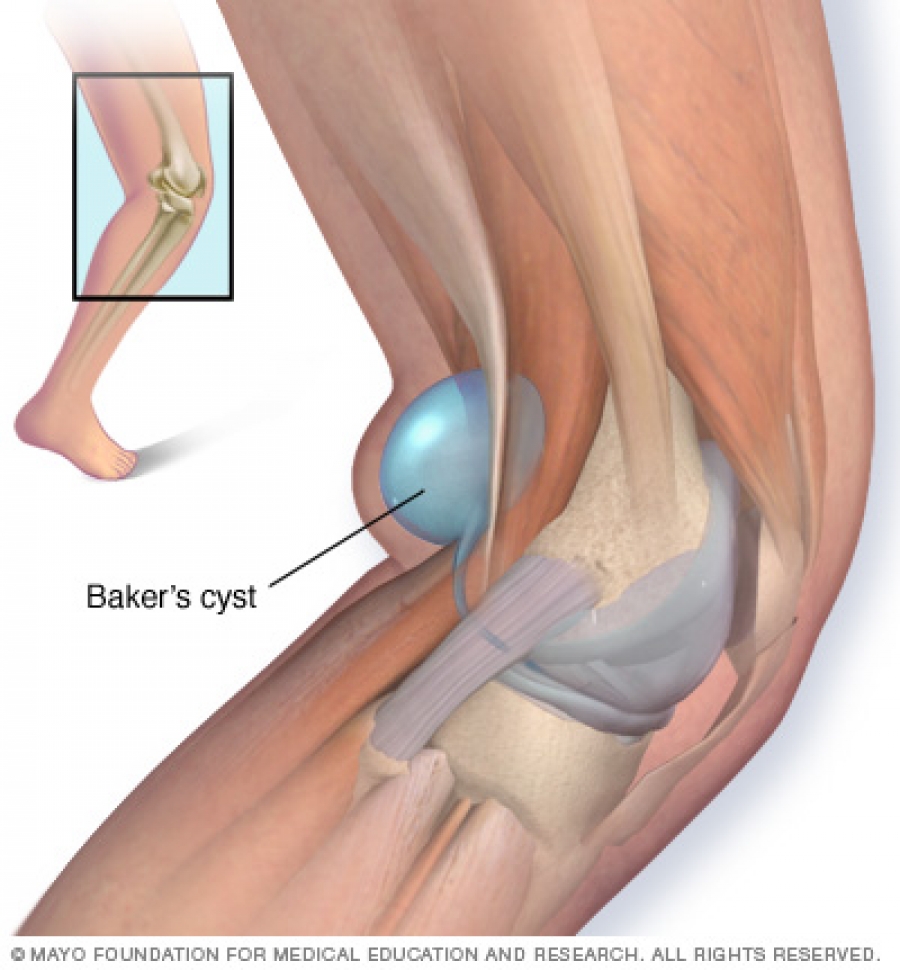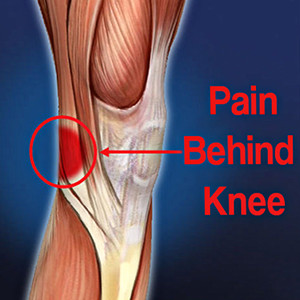
BAKER'S CYST
What is a Baker’s Cyst (“Popliteal Cyst”)?
A Baker’s cyst, also sometimes referred to as a “popliteal cyst”, is a small benign (non-cancerous) cyst that forms on the back of the knee joint. A cyst is a small sac filled with clear, thick fluid. It may range somewhat in size, but will generally not cause a great deal of pain or discomfort.
Causes of Baker’s cyst
Some of the causes of Baker’s cyst include:
• injury – trauma or injury to the knee can cause a build-up of fluid (effusion), which triggers baker’s cyst
• torn cartilage - usually affecting the cartilages (known as menisci) that bolster the knee joint on both sides
• arthritis - particularly rheumatoid arthritis and osteoarthritis of the knee joint
• infection – local infection can cause fluid retention around the knee joint
• unknown causes – baker’s cysts can sometimes develop in children for no apparent reason.
Symptoms of Baker’s cyst

Baker’s cysts may have no symptoms. If symptoms occur, they can include:
• a pronounced soft lump or swelling on the back of the knee that looks most obvious when the person is standing
• a sensation of pressure in the back of the knee joint
• persistent pain or aching
• restricted mobility of the joint
• a sensation of tightness at the back of the knee when the leg is straightened
Diagnosis of Baker's Cyst
Baker’s cyst is diagnosed using a number of tests, and may include:
• physical examination
• medical history
• joint x-ray – this will not show the cyst, but can show the presence of arthritis in the knee joint that may be causing the problem
• magnetic imaging resonance (MRI)
• ultrasound.
Treatment for Baker’s cyst
Baker’s cysts don’t always require active treatment and sometimes will only require observation over time by the treating doctor.
Treatment options for Baker’s cyst can include:
• treatment for the underlying cause, such as medication for arthritis or surgery for torn knee cartilage
• temporarily avoiding activities that aggravate the knee joint
• physiotherapy involving ice packs, the use of crutches and exercises to maintain mobility and strength
• cortisone injections
• inserting a needle into the cyst and draining off the fluid
• in severe cases, surgery to remove the cyst entirely
If you think you have a Baker's Cyst then call our office for an appointment.
248-335-2977



